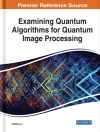An agent in a multi-agent system (MAS) has to generate plans for its individual goal, but these plans may con?ict with those that are already being scheduled or executed by other agents. It must also be able to complete its planning and resolution of these con?icts within a reasonable time to have an acceptable quality plan. Although we adopt hierarchical planning (HP, for example, see [7, 12]) using the decision-theoretic planning (DTP) approach [6] for ef?cient planning, it is not trivial to apply HPO to MAS. In HP, appropriate (abstract) plans are selected level by level to maximize the utility U (p), where where p is the expected ?nal plan comprising a sequence of primitive actions. However, in the MAS context, con?icts between agents affect the ef?ciency and quality of resulting plans. When a con?ict is found at lower levels, an additional sophisticated process for avoiding it (con?ict resolution) must be invoked and some extra actions (such as waiting for synchronization and detouring) may have to be added to the plan. The con?ict resolution process may become costly or fail. Even a single con?ict, if it is dif?cult to resolve, will result in a plan with considerably lower quality than it otherwise would have. As a result, in multi-agent systems, the second- or third-best plans may result in better overall performance.
Inhoudsopgave
Technical Keynote Address.- Adventures in Personalized Web Search.- Best Technical Paper.- An Evolutionary Algorithm-Based Approach to Robust Analog Circuit Design using Constrained Multi-Objective Optimization.- Constraint Satisfaction.- Dis BO-wd: a Distributed Constraint Satisfaction Algorithm for Coarse-Grained Distributed Problems.- Construction of Heuristics for a Search-Based Approach to Solving Sudoku.- Escaping Local Optima: Constraint Weights vs. Value Penalties.- Dynamic Rule Mining for Argumentation Based Systems.- Ai Techniques.- Extending Jess to Handle Uncertainty.- Modelling Affective-based Music Compositional Intelligence with the Aid of ANS Analyses.- Supporting Temporal Information in Medical Care Planning.- Learning Sets of Sub-Models for Spatio-Temporal Prediction.- Data Mining And Machine Learning.- Frequent Set Meta Mining: Towards Multi-Agent Data Mining.- A Flexible Framework To Experiment With Ontology Learning Techniques.- Evolving a Dynamic Predictive Coding Mechanism for Novelty Detection.- Selecting Bi-Tags for Sentiment Analysis of Text.- Multi-Agent Systems.- Merging Intelligent Agency and the Semantic Web.- Can Agents Without Concepts Think? An Investigation Using a Knowledge Based System.- Effective Selection of Abstract Plans for Multi-Agent Systems.- Expressive security policy rules using Layered Conceptual Graphs.- Data Mining.- Relevance Feedback for Association Rules by Leveraging Concepts from Information Retrieval.- Visualization and Grouping of Graph Patterns in Molecular Databases.- A Classification Algorithm based on Concept Similarity.- Metrics for Mining Multisets.- Knowledge Acquisition And Management.- Knowledge Management for Evolving Products.- Recovery from Plan Failures in Partially Observable Environments.- Automatic Character Assignation.- Short Papers.- An Agent-Based Algorithm for Data Reduction.- Towards a Computationally Efficient Approach to Modular Classification Rule Induction.- Mobile Robots and EEG – A Review.- Studying Anticipation Behavior in ALife Simulator.- A Mereological Semantics of Contexts.- Spatial N-player Dilemmas in Changing Environments.- Training and Evaluating an E-tutor.- An Ambient Intelligence Application Integrating Agent and Service-Oriented Technologies.












